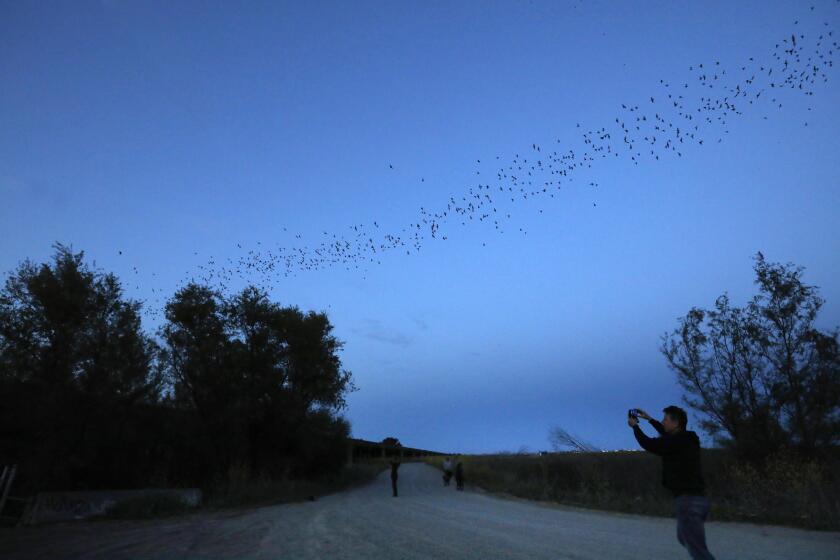Five Korean Churches May Have to Move
GARDEN GROVE — For 14 years, the congregation of Gospel First Korean Baptist Church worshiped on rented time--only in the afternoon, in a sanctuary they leased from a larger church.
Last year, after ceaseless searches for a place the 75-member congregation could afford, the church bought a modest one-story brick building near some auto repair garages, fast-food joints and old apartment buildings.
The worshipers finally felt at home, Pastor Edward Shin said. But then, “Imagine the people’s shock when they were told we may have to leave because we were operating illegally,” he said Wednesday.
Gospel First is one of five Korean churches the city has cited in the last three months for violating zoning codes that do not allow places of worship in commercial districts. Unless the City Council amends the regulations, officials have told church leaders, they will have to shut down.
The city learned of the problems in March and April, when the Fire Department conducted its annual safety code inspections of businesses and found violations such as inadequate emergency exits.
Fire officials notified the city’s code enforcement officer, who discovered that the churches violated zoning codes. Garden Grove, unlike such cities as Santa Ana and Westminster, does not allow places of worship in commercial zones.
“Churches don’t generate [tax] revenues,” and city officials long ago decided to allow only tax-paying businesses in commercial zones, said Millie Summerlin, the city planning director.
City officials said some of the safety violations can endanger lives. One church, for example, did not have a fire sprinkling system.
Officials said they did not know of the existence of these churches, which excepting Gospel First Korean are located in storefronts and office spaces. All but one opened within the year.
Church of God has been around for a few years, said the city’s code enforcement officer, Oanh Doan, and it is unclear how its zoning violation slipped past inspections.
Last month, city officials sent the churches eviction notices but rescinded the orders after meeting with the pastors and Korean community leaders, Summerlin said. The city is allowing the churches to hold services while officials find alternatives to evictions.
“We told them they don’t have to move [yet],” Summerlin said. “We will work with the individual church to find solutions.”
But some churches may have to close.
After renting space from a church in Tustin, Gospel First Korean Baptist Church in January 1996 bought the tan-brick, one-story building it calls home. Having invested $500,000, the congregation was jolted when the city sent Shin a letter notifying him the church would have to leave.
“When we bought it, we assumed that everything was legal, that we would just move into the building, renovate it and worship and pray,” Shin said. “That was obviously our mistake because we didn’t check. But we didn’t know.”
Koo Oh, president of the Korean-American Assn., a private social services group in Garden Grove, said some pastors who started the new churches were not aware of the prohibition.
Gospel First’s position is more hopeful than the four others because of its location--between a business and a residential zone--and because the church is in a building of its own and not connected to other businesses. This may enable the City Council to rezone the boundaries, and Summerlin said she will discuss this option with council members.
Korean American community leaders who organized the meeting between the pastors and city officials said both are in unenviable positions.
City officials must enforce the law. But most small Korean churches can’t afford to rent from large churches or buy their own buildings, Oh said.
“Immigrant churches, they start with few members in a room and [the congregations] get bigger and bigger as time goes by,” Oh said. “When they get bigger, they can afford to buy a bigger church, but when they are small, they usually can only afford an office space in a building.”
More to Read
Sign up for Essential California
The most important California stories and recommendations in your inbox every morning.
You may occasionally receive promotional content from the Los Angeles Times.









